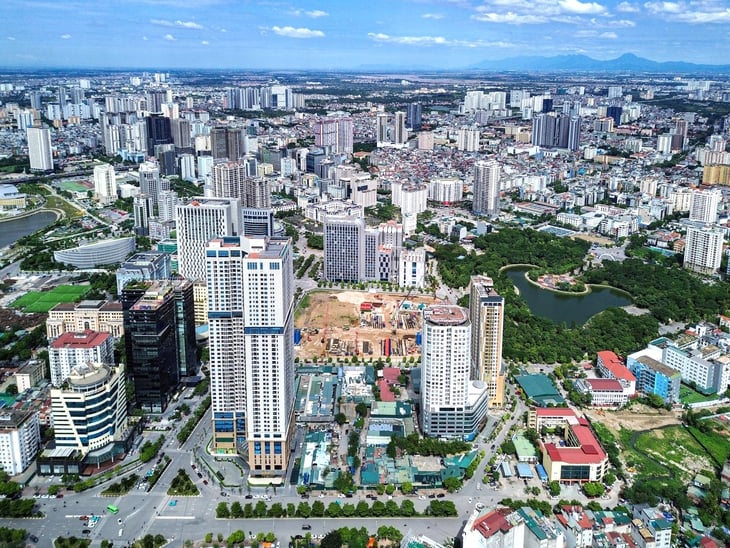
Amid concerns about rising interest rates in the near future, VARS recommends that home buyers should not borrow more than 50% of the home's value to avoid risks - Photo: HONG QUANG
The reason, according to VARS, is to avoid risks when interest rates may reverse in the near future.
Low interest rates only "temporary"?
In addition, VARS recommends that home buyers should prioritize choosing projects by reputable investors with strong financial capacity, ensuring legality and construction progress, especially with housing products formed in the future.
According to VARS analysis, with the characteristic of using large debt leverage, real estate is the investment channel most directly and deeply affected by interest rate fluctuations.
In the past, the real estate market experienced a sharp decline in 2011-2013 when lending interest rates exceeded 18-20%/year, many businesses and investors had to sell off assets to cut losses, causing the market to "freeze" for a long time, real estate prices in many areas, including the central area, decreased by 30-40%.
Part of the reason comes from the investment mentality of relying on short-term loans, while real estate projects and assets have long investment cycles. When capital costs suddenly increase, cash flow is disrupted, and the risk of illiquidity is almost inevitable, VARS is concerned.
According to VARS, in recent years, to stimulate the market, many investors and commercial banks have launched home loan packages with preferential interest rates from only 5.5%/year, even interest-free, principal grace period up to 5 years. This policy helps a large number of people and investors access cheap capital to own real estate.
However, the preferential period is only temporary. When the floating interest rate period comes, if the general interest rate increases, the pressure to repay the debt will increase sharply. Many customers have fallen into a situation where they have not paid any principal, but the interest has doubled.
When market liquidity is low, reselling products to cut losses becomes difficult, and the risk of bad debt may return to the credit system, VARS emphasized.
On the real estate side, VARS believes that they will face double risks when interest rates increase. On the one hand, they have to bear higher financial costs for loans to implement projects.
On the other hand, purchasing power in the market has declined as people have difficulty accessing loans to buy houses. Meanwhile, the channel of mobilizing capital through corporate bonds has not yet fully recovered.
Reversible
According to VARS survey, it is currently maintained at a fairly low level, but only maintained for a maximum of 36 months, then floating.
In which, Agribank is lending at a fixed rate of 6.5% in the first 2 years, floating in the following years.
BIDV lends from 5 - 5.5%/year in the first 6-12 months; Vietcombank lends 5.5 - 5.7%/year, maintained for the first 6-36 months, then floats according to the market.
The home loan limit of these three state-owned commercial banks is 100% of the home purchase contract value.
Similarly, VietinBank lends 70-100% of the contract value, with medium and long-term interest rates from 5.6%/year; ABBANK lends 100% of the contract value, with interest rates of 9.65%/year; BAC A BANK lends 100% of the capital demand, with interest rates from 6.6%/year.
Most banks' home loan packages have a maximum loan term of up to 35 years, but low interest rates are only maintained for a maximum of 3 years, causing VARS to worry that home buyers will be under pressure to pay large interest payments when interest rates reverse and increase sharply in the near future.
According to the latest data published by the State Bank, outstanding real estate debt as of the end of August this year was about 4.1 million billion VND, of which outstanding real estate investment and business debt was about 1.82 million billion VND.
Outstanding real estate investment debt includes investment debt for urban area construction and housing development projects of about VND614,000 billion, debt for office rental projects of about VND61,000 billion, debt for industrial park and export processing zone construction projects of about VND114,000 billion, and debt for eco-tourism and resort projects of about VND62,000 billion.
Debt of customers building, repairing, buying houses for sale or rent is about 130,000 billion VND, debt of customers buying land use rights is about 190,000 billion VND, debt of other real estate investment and business is about 584,000 billion VND.
Regarding outstanding real estate bonds, the Ministry of Construction said that in the first 9 months of this year, the total value of real estate corporate bonds was about 70,000 billion VND.
Source: https://tuoitre.vn/khuyen-nghi-nguoi-dan-khong-nen-vay-qua-50-gia-tri-can-nha-de-tranh-rui-ro-20251106122048406.htm






![[Photo] Da Nang: Hundreds of people join hands to clean up a vital tourist route after storm No. 13](https://vphoto.vietnam.vn/thumb/1200x675/vietnam/resource/IMAGE/2025/11/07/1762491638903_image-3-1353-jpg.webp)

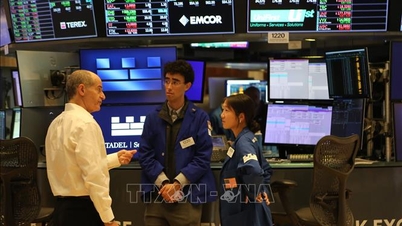



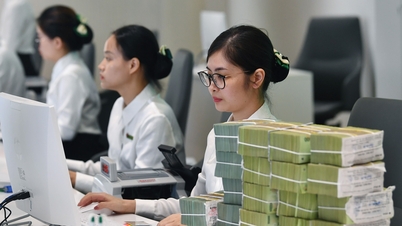
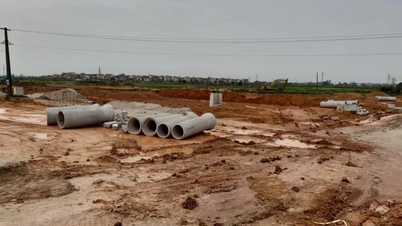



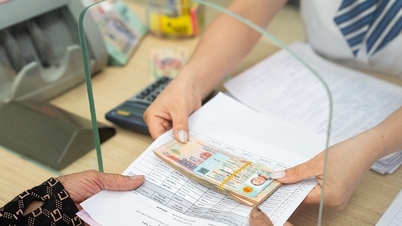




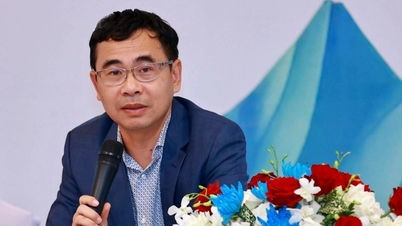












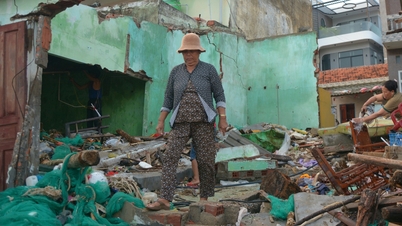



















































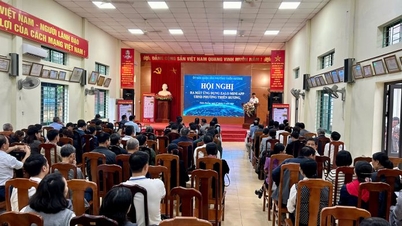


















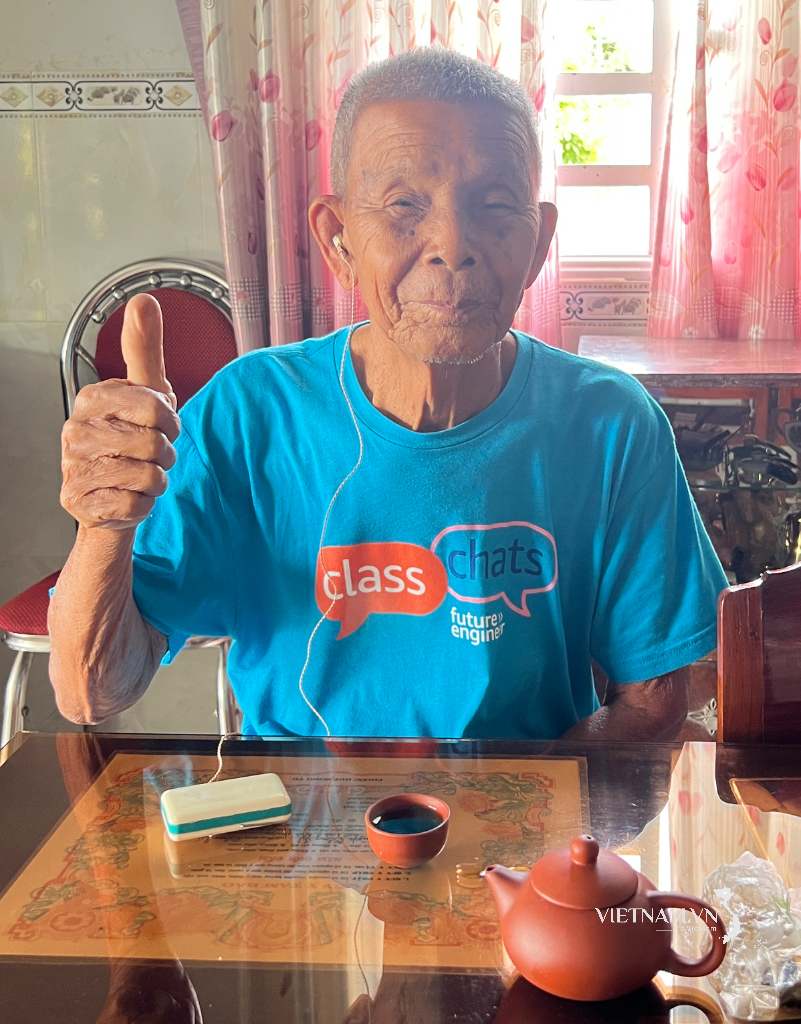


Comment (0)